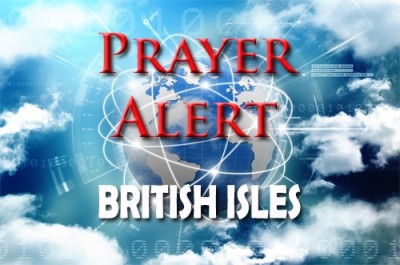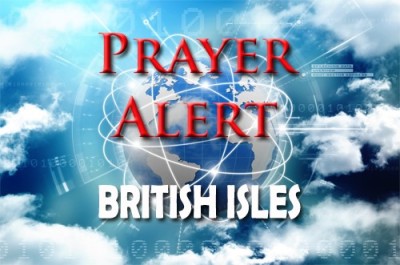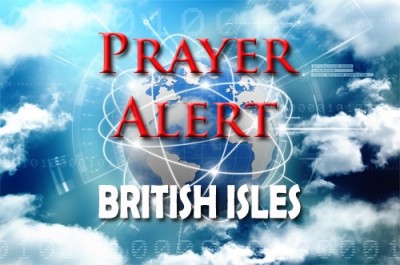A Vatican-led commission has confirmed that more than 1,600 Christians have been killed for their faith since the year 2000. The project, initiated by Pope Francis and supported by Aid to the Church in Need (ACN), draws on verified testimonies to highlight persecution across denominations. ACN’s John Newton described how believers worldwide face discrimination, harassment, abductions, and killings. He cited the 2015 martyrdom of 21 Egyptian construction workers, as well as this year’s massacre of 200 Christians in Nigeria where families were displaced, homes burnt, and victims slaughtered. 'These tragedies are underreported,' Newton said, stressing that such violence rarely makes global headlines. The commission acknowledges the true death toll may be even higher. Yet Pope Leo XIV urges Christians to find hope in the faithfulness of martyrs, whose witness testifies to the gospel’s unstoppable power and the ultimate triumph of good over evil. Their sacrifice continues to inspire courage and strengthen the global Church.
Across the USA, a historic spiritual shift is unfolding as Millennials and Gen Z turn to faith in record numbers. At the premiere of CBN’s new film The Revival Generation, one commentator compared it to the Jesus Movement of the 1970s, describing it as 'seismic’. Former presidential candidate Dr Ben Carson says cultural conditions are ripe for revival, noting that past awakenings often followed crises. He sees growing openness among young people weary of empty alternatives and hungry for truth. The American Bible Society reports a 29% rise in Bible use among Millennials from 2024 to 2025, with Gen Z engagement increasing from 11% to 15%. Congressman Marlin Stutzman says this generation is searching beyond the flood of online information, longing for stability that only truth provides. From college campuses to local communities, many discern God stirring a new movement of faith, bringing hope to a generation eager for transformation.
In 2024, Pastor Justin Walker of Salt and Light Church in La Grange, Kentucky, launched Salt and Light Academy with nothing but faith. Within a year, God provided resources, teachers, and students, transforming a former horse auction house into a thriving Christian school. Beginning with kindergarten to sixth grade, the school quickly grew, doubling enrolment and adding seventh and eighth grade, with waiting lists forming. Yet the true impact has been spiritual. Of 65 students enrolled in the first year, six accepted Christ and were baptised; one of them led their entire family to salvation and baptism. Pastor Walker sees America’s 57 million public school students as a mission field, believing secular education often promotes not only spiritual emptiness but also darkness. His vision is to build Christ-centred education that nurtures truth and pushes back unrighteousness. After the personal tragedy of his wife’s death, Walker now leads a growing family and ministry, confident of God’s call to raise disciples through education.
Three people, possibly including children, have died attempting to cross the English Channel near Calais, French authorities confirmed. The victims, believed to be from Egypt and South East Asia, were among more than seventy people crammed onto an overloaded boat. Officials said they were likely crushed to the bottom of the vessel. While 44 passengers were rescued, three later died in hospital. On the same night, another 115 people were rescued from a separate boat - one of the largest groups recorded - while three remain missing from a different vessel. This year alone, over twenty migrants have died making the perilous crossing; 2024 was the deadliest year on record, with at least 82 deaths. More than 30,000 people have already reached the UK in small boats this year. The tragedy has renewed scrutiny of people-smuggling gangs and the UK’s asylum system. New home secretary Shabana Mahmood has vowed to prioritise border security and tackle traffickers driving the crisis.
Two candidates left for Labour deputy leadership
11 Sep 2025The Labour Party’s deputy leadership contest is narrowing to a likely two-horse race between Bridget Phillipson and Lucy Powell. Education secretary Phillipson became the first candidate to secure the required 80 nominations, with 116 backers including three cabinet ministers. She has emphasised immigration and border security as key concerns for voters, particularly in constituencies vulnerable to Reform UK advances. She highlighted her record of defeating populist opponents and promised to 'give hope' by tackling small boat crossings and improving public services. Powell, with 77 nominations, has drawn support from left-leaning MPs, presenting herself as more available for campaigning than a serving minister. Other contenders failed to gain sufficient momentum. While critics fear Phillipson may be seen as a Downing Street-backed 'coronation' candidate, her supporters argue she represents unity and strength. Meanwhile, Keir Starmer faces further scrutiny over his political judgment after he sacked Lord Mandelson as British ambassador to the USA, following the publication of email messages to Jeffrey Epstein. See
Public support for the monarchy has dropped to its lowest level since records began in 1983, according to the British Social Attitudes survey. The share of people saying the monarchy is important has fallen from 86% in 1983 to just 51% in 2024. While more than half (58%) still prefer retaining the monarchy over replacing it with an elected head of state, the gap is narrowing, with 38% now favouring abolition. Younger and left-leaning people are most likely to support change, while older, right-leaning voters remain the strongest backers. Among party supporters, Conservatives (82%) and Reform UK (77%) show the highest loyalty to the crown, while Labour members are almost evenly split. In Scotland and Wales, most respondents favour an elected head of state. The findings, released ahead of Donald Trump’s state visit to Windsor Castle in September, underline a shifting national mood.
The Trussell Trust is calling for urgent government action in the autumn budget to tackle soaring hunger across the UK. Its landmark study, Hunger in the UK, reveals that 14.1 million people, including 3.8 million children, faced hunger in 2024 due to insufficient income. This represents one in six households, and is a rise from 11.6 million in 2022. Foodbank reliance is growing, but many go without help, believing others are in greater need. The crisis hits children under five and disabled people hardest, with nearly three quarters of foodbank users living with disabilities. Alarmingly, 30% of those referred are from working households, showing that employment is no safeguard against hardship. Universal Credit is failing to protect families: over half of recipients experienced hunger last year. With households left with only £104 a week after housing, Trussell says poverty is about income, not food supply. They urge scrapping the two-child limit, reforming Universal Credit, and uprating Local Housing Allowance to prevent hunger from becoming routine.
Sinn Féin has called on the PSNI to do more to tackle racist mob violence after migrant workers were attacked at Connswater Retail Park, east Belfast. Video footage showed two cars surrounded and damaged by a group of men, in what police are treating as racially motivated hate crimes. Although PSNI officers were present, they did not intervene, saying they were conducting an 'evidence-gathering operation’. The response has sparked outrage. Green Party councillor Brian Smyth warned that rising vigilante patrols targeting migrants risk someone being killed, describing the Connswater incident as an attempted 'racial lynching.' He said migrants are now 'living in terror' in their homes. Sinn Féin condemned the 'deplorable attack' and urged immediate arrests, insisting vigilante violence 'has no place in society’. The police have pledged to increase patrols to reassure the community and challenge racist groups. Chief Inspector Louise Dunne said that those involved lack any 'legal or moral authority' and are spreading fear rather than protecting communities.







